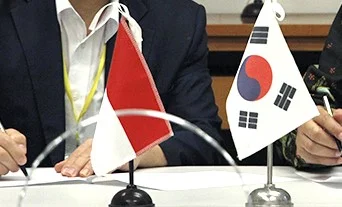Business not as usual: coronavirus and its implications for FDI
/As we all begin to digest the existing and potential impact of the latest coronavirus on our lives and the lives of those we hold dear, it was inevitable that a crisis of such magnitude would send major shockwaves through the world’s interconnected economy. Foreign Direct Investment (FDI) prospects are no exception, with the United Nations Conference on Trade and Development (UNCTAD) recently announcing that the downward pressure on FDI is likely to be somewhere in the region of -5% to -15% globally.* International businesses with previously healthy balance sheets and deep pockets are facing existential crises, and not only in the sectors commonly spoken about, such as retail, hospitality and travel. A whole swathe of other industries – from advanced manufacturing, to construction, consumer electronics and many others – are deeply vulnerable as the ongoing crisis dampens consumer confidence and disrupts supply chains.
Faced with these challenges, and a global shutdown when it comes to international events and travel, where does this leave the world’s investment promoters and their agencies (IPAs)?
A shift in focus:
Investment promotion is traditionally by its very nature a travel- and meeting-oriented function. Maximising attendance at international trade fairs and conferences has been one of the most effective lead generation activities for many IPAs. However, as flights and events around the world get cancelled, there are a few important approaches investment promoters can adopt to make the best of the challenging situation:
Focus on existing investors: Like all good client-oriented organisations, IPAs should be in contact with their clients (in this case investors) to understand the latest developments with their businesses locally, regionally and globally. Understanding the major challenges being faced by investors in the short and medium- to longer term – whether coronavirus-related or not – will help IPAs to prioritise and devise potential solutions along with their government peers. Allocating sufficient resources to activities that support investor retention and expansion is good practice even in normal times: a 2017 World Bank Group survey found that an IPA’s, “assistance to handle issues and problems, and resolve grievances with the government” was deemed by investors to be the most important service – with 75% of respondents rating this as either ‘critically important’ or ‘important’.** Despite this, IPAs allocate, on average, only 10% of their budgets to aftercare activities, according to a recent survey by the World Association of Investment Promotion Agencies (WAIPA).*** With the coronavirus pandemic creating a host of massive challenges for companies and their employees, from input supplies to staff healthcare and well-being, host countries and their IPAs in particular should be playing a proactive role in communicating their governments’ latest support measures. Invest India’s recently-established ‘Business Immunity Platform’ is one good example of this type of proactive approach.
Rethink investment promotion strategies – especially implementation plans: FDI-related targets that were set for 2020 are now clearly going to need to be rethought substantially, as will plans for at least the first half of 2021, most likely. In the vast majority of cases, investors’ location shortlisting and selection decisions are going to be postponed as they deal with other priorities concerning their operations, customers, clients and staff. In terms of the IPAs’ planned activities and resources, those relating to overseas travel at least for the next few months (meetings, conferences, trade fairs and other events) should be replaced with an increased focus on domestic, online and digital activities (see the next point below).
Up your digital game: Businesses the world over are to a greater or lesser extent adapting to a ‘digital new normal’ as a means of keeping connected with staff, client and customers, with increased investments in video-conferencing, screen-sharing and other web-based collaborative platforms. IPAs which are not already making good use of such facilities need to start thinking about doing so, and while business travel may be off the cards for at least a couple of months, innovative ways of showcasing a location’s attributes should be considered: think of how virtual reality (VR) and the use of digital tours has been adopted by certain segments of the travel and tourism industry, as well as the real estate sector. Surely at least some investment offerings in other sectors could benefit from similar VR tours? Beyond this, getting ‘the basics’ right will continue to be important: top-notch IPA websites that are well designed, easily navigable and have the right types of content remain essential, while investing in good internet connectivity will be increasingly important for locations that have traditionally lagged behind in this area.
In short, there are plenty of worthwhile activities IPAs can undertake while the coronavirus pandemic puts a halt on many day-to-day activities, and in so doing, many should hopefully discover good practices that they will continue long after this crisis has hopefully subsided.
* https://unctad.org/en/pages/newsdetails.aspx?OriginalVersionID=2299
** 2017-2018 Global Investment Competitiveness Report: Foreign Investor Perspectives and Policy Implications, World Bank Group.
*** WAIPA Annual Survey, January 2019.








